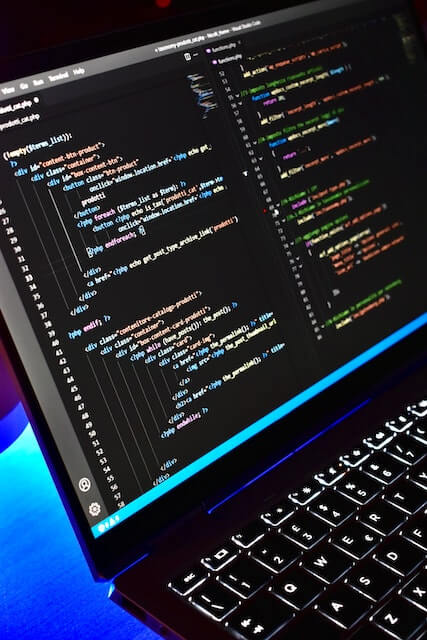
Maintaining Motivation and Productivity in International Development Teams

With the rapid growth of the global outsourcing market, international teams have become increasingly popular. Nowadays, almost any team in the IT domain involves employees from different states and with different cultural backgrounds. Unfortunately, international teams are associated with particular challenges. Member disconnection, cultural differences, and different backgrounds – are just some factors affecting the efficiency of international teams. While managing international teams might be a difficult task, certain practices simplify this process.
A manager of an international team needs to understand the factors behind the motivation and productivity of the team members. In this article, we enumerate the most important points to consider while managing international teams. By following the tips presented in this material, a manager can solve most challenges associated with international team motivation.
Why are international teams so popular?
International development teams can bring your software development project a great range of benefits. This approach brings you dynamism and innovation. One of its most important advantages is access to a diverse talent pool. By leveraging the skills and expertise of developers from various countries, companies can harness a wide range of technical proficiencies. Besides, it is a tried and trusted way to innovative approaches that might not be available locally. This diversity in talent leads to more creative problem-solving. This is because international teams often foster a culture of innovation. Another important benefit of international development teams is that they can provide around-the-clock productivity. With team members spread across different time zones, projects can progress continuously, reducing downtime and accelerating time-to-market.
Another important advantage of international development teams is their cost-effectiveness. International teams often involve members from countries and regions with lower rates. As a result, businesses save costs for other important activities. In addition, international teams enhance market understanding and localization. With team members from different regions, companies gain valuable insights into local markets, customer preferences, and regulatory environments. There are also many international teams with great experience in offshore software development. They are often composed of experienced specialists ready to elite quality.
The main issues with international teams relate to managing them. Sometimes, it can be especially challenging to keep all team members “in shape” and motivated.
How to keep your international software development team motivated
Motivation might be a very tricky thing, especially when it comes to different people from distinctive regions. Finding each employee’s source of motivation and keeping his or her working morale high might be a great challenge. Even though perfection in motivating all team members seems almost impossible, certain useful practices will help. Here are some tips for motivating distributed teams that derive from real-life experience. If enhancing team productivity and collaboration is essential to you, be sure to apply these practices in your projects.
Focus on efficient communication
One of the most important aspects of managing an international team is ensuring clear and consistent communication. Communication challenges can arise due to time zone differences, language barriers, and cultural nuances. To address these, managers should establish regular communication routines. Regular meetings are vital, but they should not be too frequent. The abundance of meetings can be exhausting for team members. This, in turn, will also harm their motivation. It is also vital to create an open communication culture where team members feel comfortable. All specialists should be ready to share their thoughts and concerns. The key point here is feedback. Managers should be ready to provide feedback and receive it from team members. This will ensure transparent communication, which is essential for motivating and engaging international teams.
Discover success stories on keeping international teams productive and motivated, featuring insights from our clients: Life360, Superfeed, AppleIndustries, Flightright, Public, and more.
Pay attention to cultural sensitivity
Cultural sensitivity is also crucial when it comes to keeping your team members motivated. To ensure cross-cultural team collaboration, you should ensure that all your employees are motivated and respected. After all, understanding and respecting cultural differences can significantly enhance team dynamics and productivity. Managers should take the time to learn about the cultural backgrounds of their team members. Some research is required as it is essential to be aware of any cultural norms or practices that may influence their work habits or communication styles. This knowledge can help prevent misunderstandings and ensure that all team members feel valued and respected. The main goal of this approach is to establish a culturally diverse and inclusive environment in which all members of your team feel comfortable and motivated.
Set clear goals and performance metrics
Clarity is the key to your team’s productivity. That’s why establishing clear goals is so vital. Imagine working on a project without clear goals and an understanding of what you need to achieve. For most specialists, including the ones from international teams, this will cause frustration. This, in turn, will mean a lack of motivation. To enhance productivity in global teams, managers should ensure that all team members understand the objectives of the project and their individual roles and responsibilities. Specific, measurable, achievable, relevant, and time-bound (SMART) goals are the answer. Regularly review and update these goals to keep the team focused and aligned with the organization’s priorities. Provide feedback upon achieving any goals or milestones. Such recognition is crucial for maintaining motivation and morale. Managers can establish formal recognition programs or informal gestures. For example, even a simple personalized note of appreciation can make a particular employee motivated. Celebrating successes boosts team morale. It also helps team members understand that their contributions matter. This, in turn, makes all specialists more engaged in the process and interested in the overall project’s success.
Create a sense of community
Building strong relationships and a sense of community within the team is vital for maintaining motivation and productivity. Managers should encourage team members to connect and collaborate on a personal level. Surely, such affairs can not be enforced. However, certain practices will help in building stronger bonds between team members. Organizing virtual team-building activities, such as online games or virtual coffee breaks, can help strengthen relationships. This approach can also help teams create a more cohesive team environment. Managers should be proactive in addressing any conflicts or tensions that may arise within the team. Even the smallest case of misunderstanding between specialists may lead to big conflicts in the future. Honest discussions are very important for effective remote team management. With such practices, managers can help resolve conflicts and maintain a positive team dynamic.
Provide opportunities for professional growth
Professional growth opportunities play a crucial role in keeping international team members motivated. After all, self-development brings specialists a sense of achievement, which is very positive in terms of motivation. By providing them with the tools and pathways to enhance their skills and advance their careers, you can keep international team members engaged. Certain practices that are worth mentioning involve training programs, workshops, paid courses, mentorships, and the provision of various educational materials. Knowledge-sharing sessions are also vital. Managers should foster information exchange between team members to ensure their professional development and strengthen team bonds. All such practices are very efficient when it comes to boosting team members’ confidence and job satisfaction.
When team members see that their organization invests in their personal and professional development, they obtain a sense of commitment. This commitment is especially important in international teams, where members feel themselves working “in a vacuum” due to geographical and cultural distances. Managers should provide clear career progression paths so that employees envision their future within the organization. Apart from boosting team morale and motivation, such an approach will reduce turnover rates. Finding a devoted specialist is not an easy task. That is the above-mentioned practices pay off.
Foster a sense of autonomy
Many employees enjoy a sense of autonomy. The worst thing that a manager of an international team can do is engage in micromanagement activities. It is important to allow team members to take ownership of their work and make decisions independently. Managers should encourage team members to take the initiative. It is important to avoid subjective criticism of any initiatives. If something goes wrong, managers should focus only on providing constructive feedback. If needed, they should provide international team members with resources and support. The key point is to create a culture where any specialist is ready and willing to take the initiative. By empowering team members, managers can create a more engaged and motivated team.
Don’t forget about team members’ work-life balance
Promoting a healthy work-life balance is crucial for enhancing team productivity and motivation. Managers should be mindful of the challenges that international team members may face. Working across different time zones may be hard, and there may be problems related to family commitments. It is vital to stay open to employee demands. If the situation allows, a great idea would be to offer specialists flexible hours. A fair approach to vacations and day-offs is another essential thing. Professional burnout may be very damaging to an employee’s motivation.
Interested in how to build a dedicated software development team? Don’t miss out on our post!
Make sure that team members understand the value of the project
Many specialists can feel motivated if they understand that the product they are working on will produce a positive impact. Here it goes about social and environmental impact, as well as about mere user satisfaction. The team should not perceive their effort as an attempt to create just another app with a very questionable future. Instead, they should think about the value their effort will bring to users. If the solution can produce any positive social impact or solve painful problems, managers should emphasize this fact. Team members can feel a sense of pride and get a better understanding of purpose, which is positive in terms of motivation. For example, if you are building an app that will have a specific mode for people with disabilities, communicate this fact to the team. Such a feature can become your product’s unique selling point. And it will definitely boost the specialists’ sense of responsibility. In addition, this approach will motivate your international team members to take a more user-centric approach. This might positively impact the quality of your app. As more users will be satisfied, the solution will get higher adoption rates. And all these rates can easily transform into your profits.
Conclusions
International teams are very common in the modern software development domain. A cross-border approach brings businesses many benefits, such as access to a global talent pool, competitive prices, and unique expertise. The main problem here is the diversified nature of such teams and their remote cooperation creates numerous challenges. Managers can find it hard to keep international teams productive and motivated. Fortunately, several best practices will come in handy in such cases.
It is important to focus on the efficient communication of international teams. Managers should also pay attention to specialists’ cultural sensitivity and provide them with clear goals and metrics. A sense of community and opportunities for professional growth also matter a lot in this context. By fostering a sense of autonomy among team members and allowing them to maintain a life-work balance, managers can also make international teams more productive and motivated. Finally, it is important to explain the value and the impact of the project to team members. If all these suggestions are followed, you may expect great efficiency from a cross-border team.
Relying on a complete international team of specialists is also a great idea. nCube has rich experience in international cooperation. We are ready to tackle various software development challenges in many industries and the most specific technological domains. Contact us to start an international team cooperation that brings actual value.
Recommended articles


